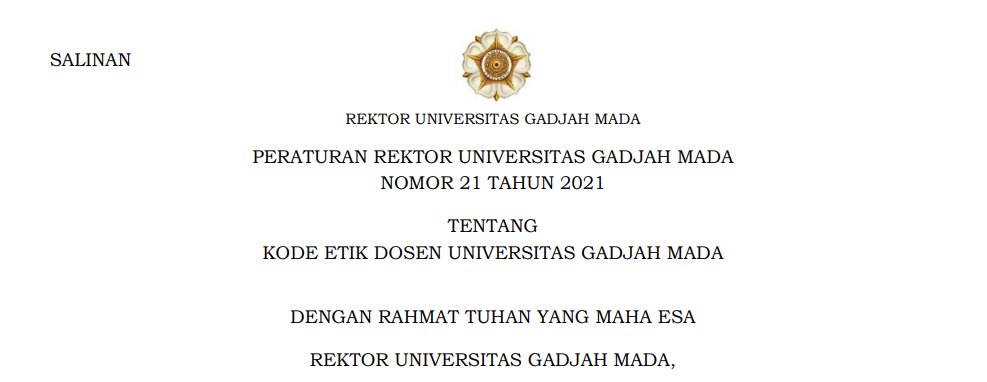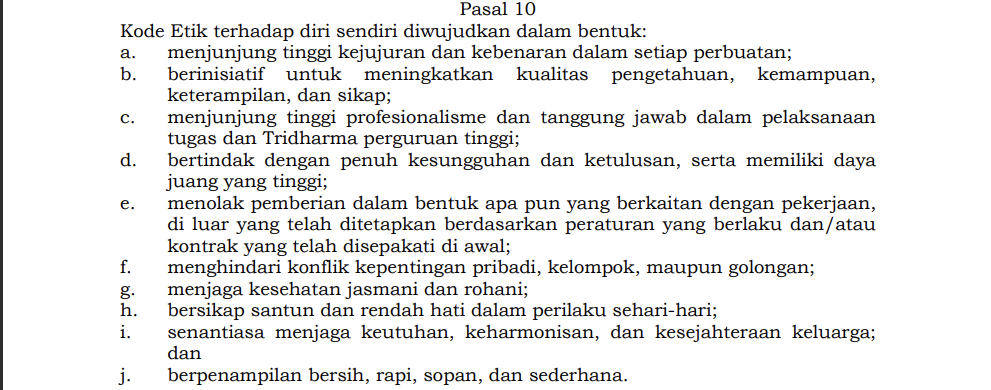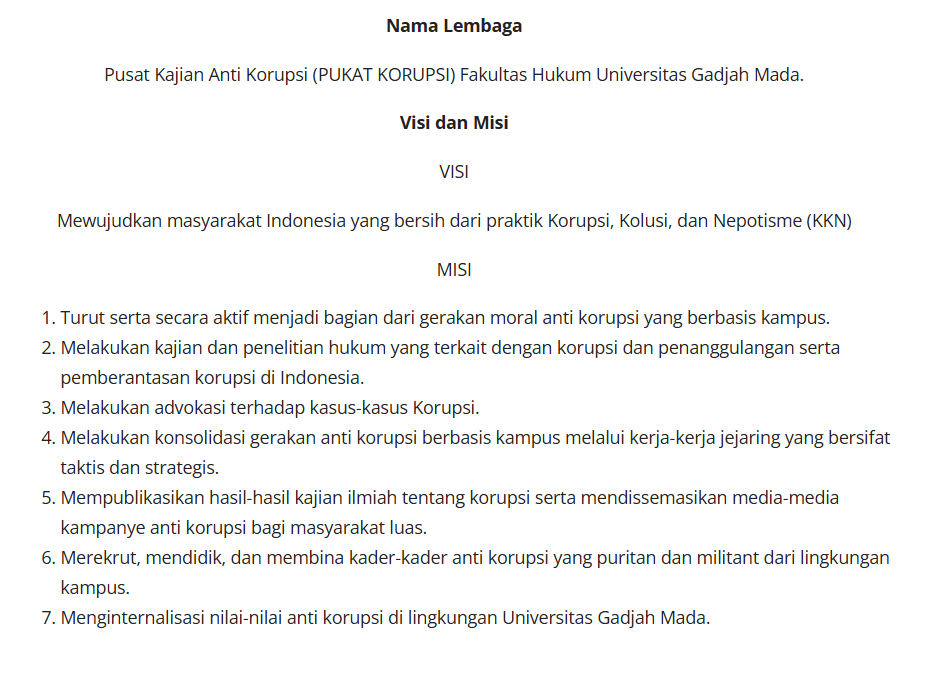The University has made several efforts as a form of commitment that seeks to reduce organised crime. This has been regulated in the Rector’s Regulation Number 21 Year 2021 (Article 10). One of the ways to regulate bribery and corruption is for academic staff to refuse gifts in any form related to work beyond what has been determined based on applicable regulations and/or contracts that have been agreed upon in advance. Article 10 states that, in ten sections of the Code of Ethics, lecturers are bound to uphold honesty and professionalism in carrying out their duties and the Tridharma of higher education.


The implementation of the regulation was realised by establishing the Center for Anti-Corruption (PUKAT) to systematise the anti-corruption movement by identifying the roles and positions that each element can play. PUKAT has a mission to actively participate in:
- Conducting legal studies and research related to corruption and the prevention and eradication of corruption in Indonesia.
- Conducting advocacy on corruption cases.
- Consolidating the campus-based anti-corruption movement through tactical and strategic networking works.
- Publish the results of scientific studies on corruption and disseminate anti-corruption campaign media for the wider community.
- Recruiting, educating, and nurturing puritanical and militant anti-corruption cadres from the campus environment.
- Internalising anti-corruption values within Universitas Gadjah Mada.


There are other commitments from the campus to eradicate corruption and bribery of leaders through the implementation of risk management and integrity zone planning at Universitas Gadjah Mada. The implementation of risk management is in line with the mandate of the Directorate General of Higher Education and Research regarding the development of Integrity Zones in all Faculties and Schools within UGM, which has the same principles to realise Good University Governance (GUG).
References:
